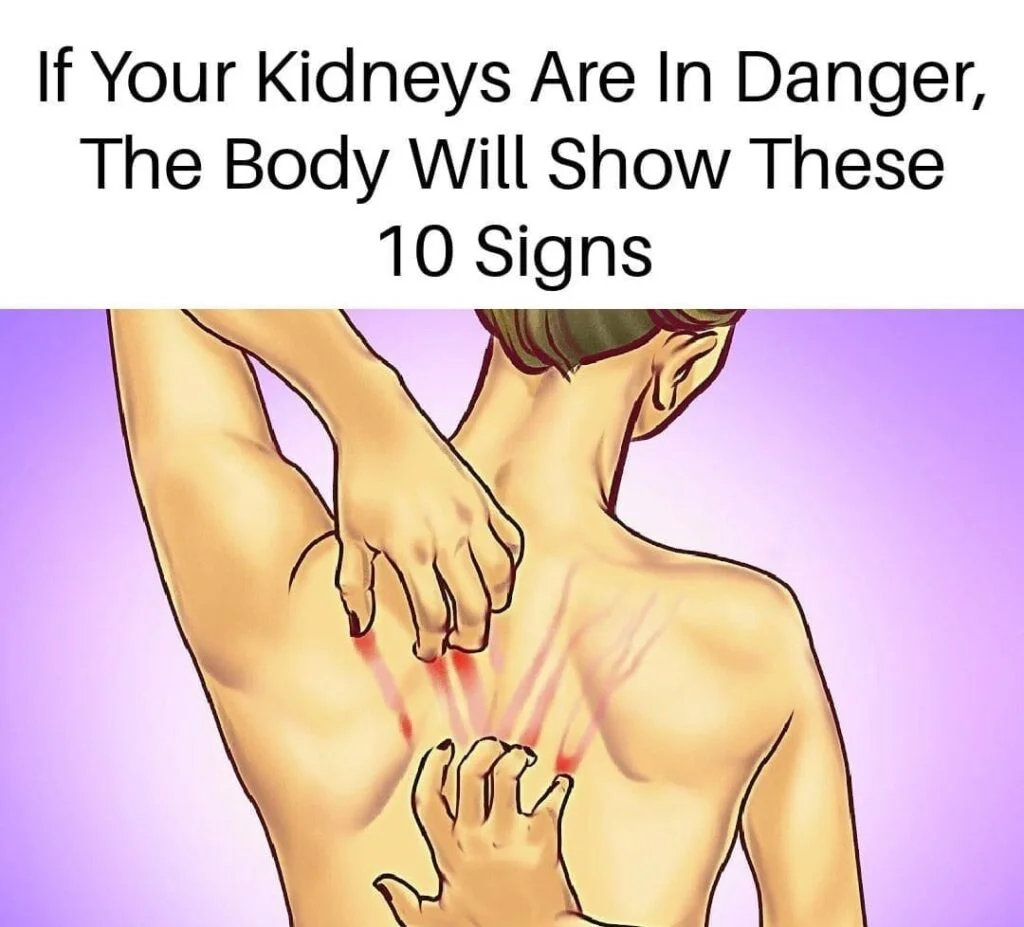Kidney disease is a serious condition that can affect your overall health if not detected early. The kidneys play a vital role in filtering blood, removing waste, and balancing fluids in the body. If they begin to fail, it can lead to severe complications. However, your body sends you clear signals that something may be wrong. Knowing the signs of kidney disease can help you seek timely treatment and prevent further damage.
What is Kidney Disease?
Kidney disease, also known as renal disease, occurs when the kidneys are damaged and no longer function properly. There are various causes, including high blood pressure, diabetes, infections, and genetic factors. Over time, untreated kidney disease can progress to kidney failure, which may require dialysis or a transplant. Early detection is crucial to managing the condition and improving the quality of life.
Common Signs of Kidney Disease
- Changes in Urination One of the first signs of kidney disease is a change in urination patterns. You may find yourself urinating more often, especially at night, or you could notice decreased urination. Additionally, the urine may appear foamy or darker than usual, indicating possible kidney problems.
- Fatigue and Weakness When kidneys are not functioning properly, they can cause anemia, a condition that leads to low red blood cell count. This can result in persistent fatigue, weakness, and a lack of energy. If you constantly feel tired, even after a full night’s rest, it could be a sign of kidney issues.
- Swelling (Edema) Swelling, especially in the legs, feet, hands, or face, is a common symptom of kidney disease. This happens when excess fluid builds up in the body due to the kidneys’ inability to filter waste effectively.
- Persistent Back Pain Kidney disease can cause pain in your lower back, just below the ribcage. This pain may be severe and persistent, often linked to urinary tract infections or other kidney-related issues.
- Unexplained Weight Loss or Loss of Appetite If you experience sudden weight loss or a significant decrease in appetite, it could be a sign that waste products are building up in your body. This happens because the kidneys are no longer filtering waste efficiently.
- Nausea and Vomiting Kidney disease often leads to nausea, particularly after meals. This can sometimes result in vomiting, which can worsen the more the kidneys fail to do their job. If you regularly feel nauseous, it might be linked to kidney function issues.
- Difficulty Sleeping People with kidney disease often report trouble sleeping, which may be due to factors such as muscle cramps, restless leg syndrome, or the need to urinate frequently at night. Difficulty sleeping could signal kidney problems.
- Metallic Taste in the Mouth A persistent metallic taste in the mouth is another common symptom of kidney disease. This occurs because toxins and waste products begin to build up in your bloodstream, affecting your taste buds.
- Muscle Cramps and Twitching Electrolyte imbalances, which are common in kidney disease, can lead to muscle cramps and twitching. Low potassium and calcium levels can cause this issue, which can interfere with normal muscle function.
- Itchy Skin When the kidneys aren’t functioning well, toxins can accumulate in the bloodstream, leading to itchy skin. This sensation often spreads across the body and can be a sign that your kidneys are struggling.
What You Can Do to Prevent Kidney Disease
Prevention is key when it comes to kidney health. Here are some lifestyle changes you can make to reduce your risk:
- Maintain a Healthy Diet: Eating a balanced diet rich in fruits, vegetables, whole grains, and lean proteins can support kidney function. Limit salt, processed foods, and sugary beverages to reduce strain on your kidneys.
- Exercise Regularly: Staying active helps control blood pressure and blood sugar levels, which can reduce the risk of kidney disease. Aim for at least 30 minutes of moderate exercise most days of the week.
- Stay Hydrated: Drinking plenty of water is essential for kidney health, as it helps the kidneys filter waste more effectively.
- Avoid Smoking: Smoking can damage blood vessels, including those in the kidneys, making it harder for them to function properly. Quitting smoking can significantly reduce your risk of kidney disease.
- Monitor Medications: Both prescription and over-the-counter medications can have an impact on kidney health. Always follow your doctor’s instructions for taking medications and consult with them if you’re unsure about how a medication affects your kidneys.
- Get Regular Check-ups: If you’re at higher risk for kidney disease, such as having high blood pressure or diabetes, make sure to get your kidneys tested regularly. Early detection can help prevent the disease from progressing to kidney failure.
Full Story:
For more on health topics and how to maintain a healthy lifestyle, check out these informative articles:
Conclusion: Take Action for Your Kidney Health
Kidney disease is often silent in its early stages, but the signs your body sends you can be a wake-up call. If you experience any of the symptoms mentioned, don’t wait for them to worsen—seek medical help immediately. Taking proactive steps to protect your kidneys through a healthy lifestyle and regular check-ups can help prevent kidney disease and ensure that you maintain good health for years to come. Remember, early detection and intervention can make all the difference in your recovery and quality of life.


